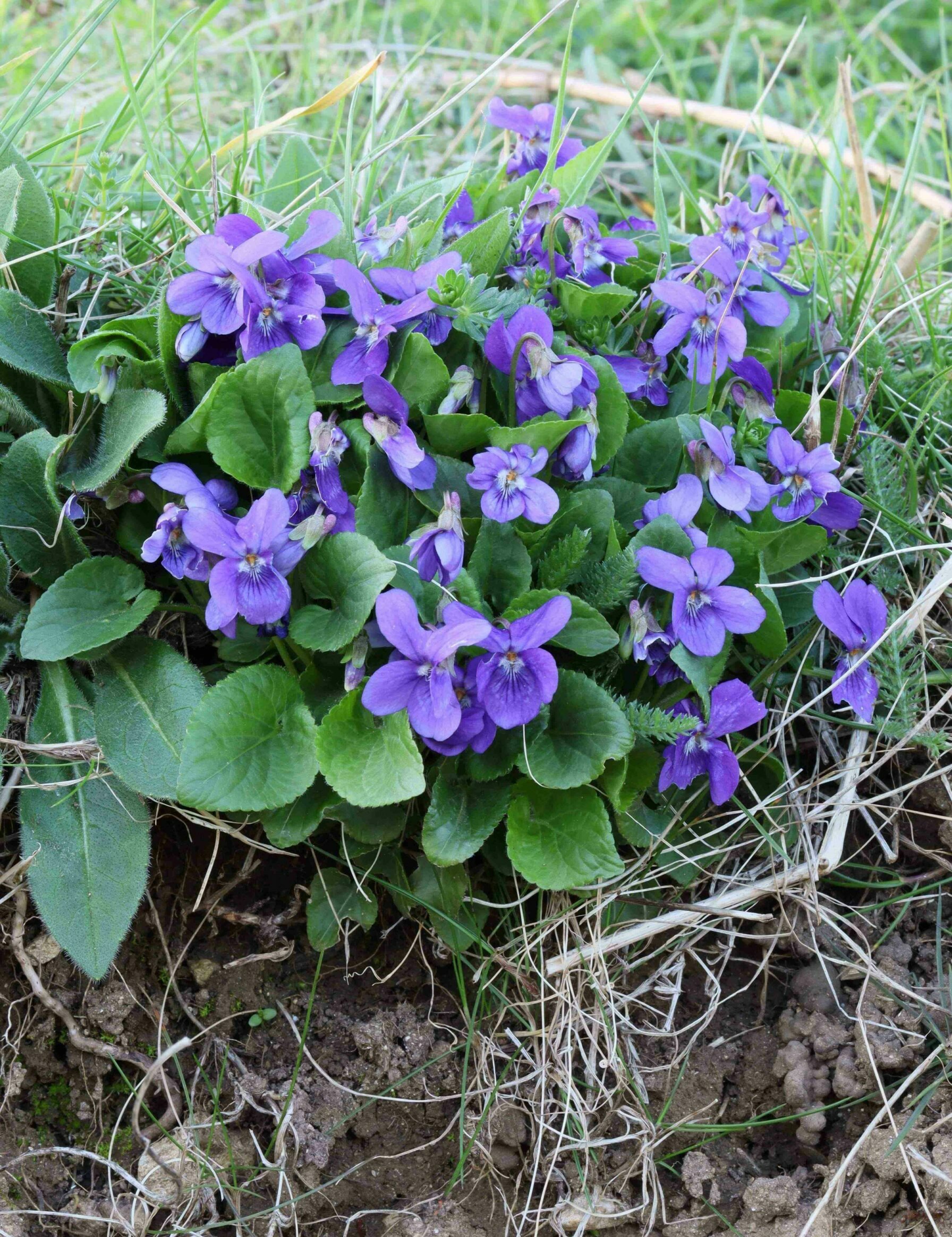Description
This attractive little native is one of three species of violet commonly encountered in woodlands. Starting in February, the earliest to flower is sweet violet (see previous page) which can be distinguished from the others as it is scented and has blunt sepals. Next, in early March, comes the early dog-violet (not available from us at present) and then in early April this species, the common dog-violet. The two dog-violets can most easily be told apart by the colour of the spur behind the flower. In early dog-violet the spur is darker than the petals whilst in this species it is paler.
Habitat Information
Common dog-violet is a native perennial of deciduous woodland, hedges and other shaded habitats. It can be found on a wide range of soil types, but is most frequent on calcareous soils over limestone and chalk or base-rich clays.
As with early dog-violet, ants help to spread the seed. They are attracted to a fleshy structure on the seed known as an elaiosome and can carry them for some distance before losing interest and dropping them.
Growing Information
Sow in the autumn as the seed may require a period of chilling to break dormancy.


